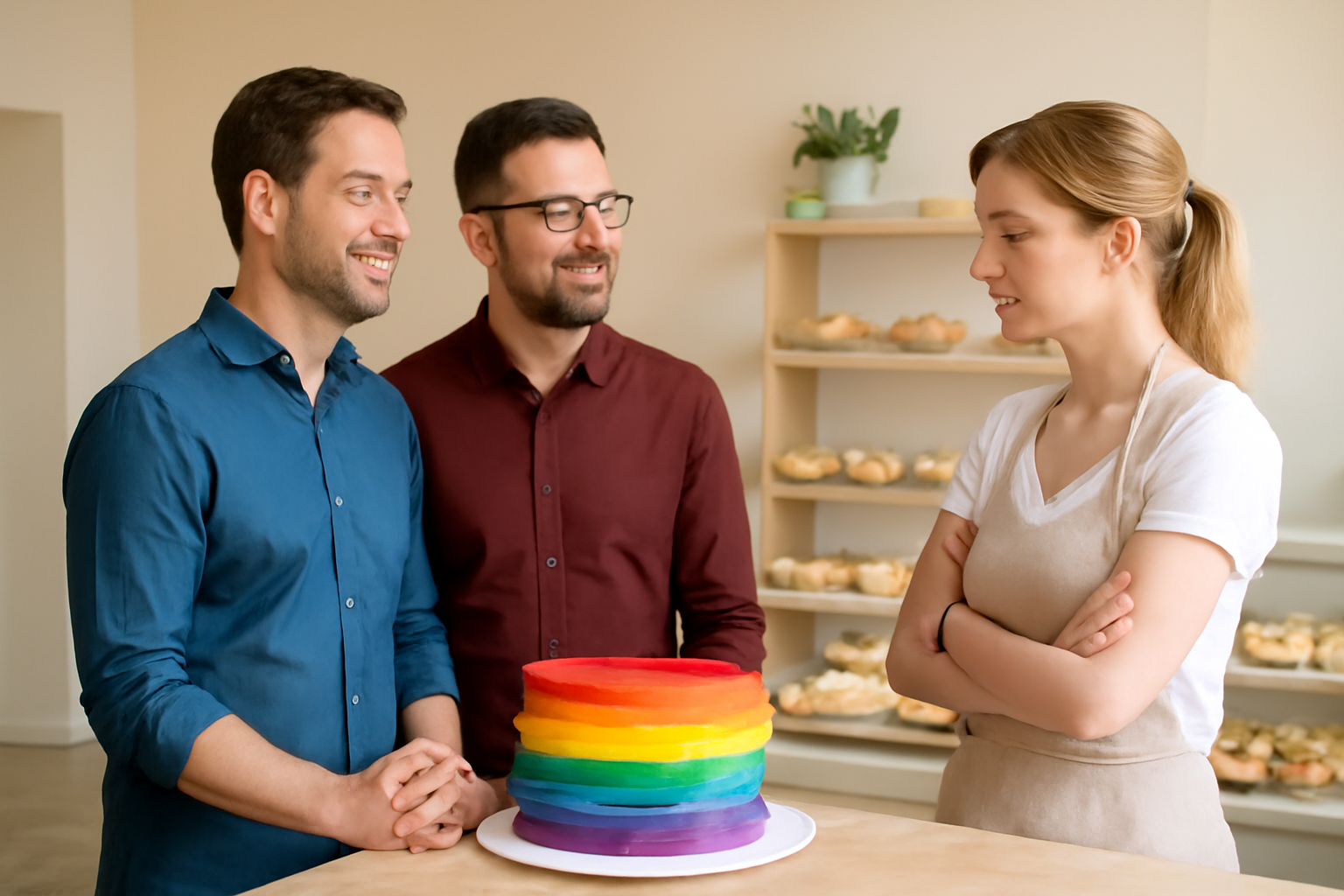
In a landmark decision that reinforces the principles of equality and anti-discrimination, a California court has ruled against a bakery that refused service to a same-sex couple. This case has garnered significant attention, highlighting the ongoing struggle for LGBTQ+ rights in the commercial sphere.
The case began when the couple, seeking to celebrate a milestone in their relationship, approached the bakery to order a custom cake. The bakery, citing religious beliefs, declined to fulfill the order, stating that their faith prohibited them from creating a cake for a same-sex couple. This refusal prompted the couple to file a lawsuit, claiming that the bakery's actions were discriminatory under California's anti-discrimination laws, which prohibit businesses from denying services based on sexual orientation.
Legal Battles and Public Reactions
The case quickly escalated, capturing the attention of both the media and advocacy groups on both sides of the issue. Proponents of the bakery's stance argued that forcing the business to create a cake for the couple would violate their religious freedoms. Conversely, advocates for the couple contended that allowing such discrimination undermines the very essence of equality and inclusivity that laws are meant to uphold.
Throughout the case, legal experts weighed in, highlighting the tension between religious freedom and anti-discrimination laws. California's laws are clear in their protection against discrimination based on sexual orientation, and the court's decision affirmed these legal protections.
A Decision Grounded in Equality
The court's ruling was clear: businesses open to the public must serve all customers equally, regardless of their sexual orientation. The decision underscored that allowing businesses to refuse service based on sexual orientation would set a dangerous precedent, opening the door to widespread discrimination under the guise of religious freedom. The court emphasized that the right to religious beliefs does not extend to actions that harm others or deny them equal treatment under the law.
In the decision, the judge stated, "While the freedom to express religious beliefs is a fundamental right, it does not permit an entity to infringe upon the rights of others under the pretext of those beliefs. Discrimination in any form is not only unlawful but contrary to the values of equality and justice."
Broader Implications and Community Impact
This ruling has broader implications for similar cases across the United States, where businesses have refused service to LGBTQ+ individuals citing religious reasons. Legal experts believe this decision could serve as a precedent, affirming the importance of anti-discrimination laws in protecting marginalized communities.
The LGBTQ+ community and its allies have celebrated the court's decision, viewing it as a victory for equal rights and a step forward in combating discrimination. Many hope that this case will deter similar discriminatory practices in the future, encouraging businesses to embrace diversity and inclusion.
Furthermore, this ruling sends a powerful message to the LGBTQ+ community, reaffirming their right to be treated with respect and dignity in all facets of life, including in their interactions with businesses. Equality is a cornerstone of society, and this decision strengthens that foundation.
Continuing the Fight for Equality
While this case marks a significant victory, advocates for LGBTQ+ rights recognize that the fight for equality is ongoing. Discrimination against LGBTQ+ individuals persists in various forms, and continued vigilance is necessary to ensure that laws designed to protect marginalized communities are enforced.
Organizations and activists continue to work tirelessly, not only to challenge discriminatory practices but also to educate the public about the importance of equality and inclusion. Campaigns promoting understanding and acceptance are crucial in fostering a society where all individuals are valued and respected.
As this case illustrates, the intersection of religious beliefs and anti-discrimination laws will likely continue to be a contentious issue. However, the reaffirmation of equality and justice as guiding principles in legal decisions is a hopeful sign for the future.
Ultimately, this California court ruling is a reminder that progress is possible and that legal systems can and should play a pivotal role in upholding the rights of all individuals, regardless of their sexual orientation or identity.
Related Posts
Pride Month in Latin America: Protests and Demands for Equality
**Celebrating Pride and advocating LGBTQ+ rights in Latin America** Pride Month in Latin America was a lively mix where celebration met activism. Communities united, not just throwing a party but making a stand—demanding equality and pushing governments toward better protection and rights recognition. Throughout Latin America, pride events erupted in marches and cultural displays, each with a c [...]
Transgender Erasure Actions Implemented by National Park Service
```html Trump administration's impact on national park service and transgender recognition The Trump administration made notable moves in undermining transgender representation, which included directing agencies like National Park Service not include "T" and "Q" when they refered “LGBTQ” in any official communication. This move seems part a broader plan by this administration aimed at reducin [...]
Drag Night Extravaganza: Daddies & Baddies at Atlantic City's Anchor Rock Club
Atlantic City, NJ, isn't just about its casinos and boardwalk—it's a hub bursting with energy and entertainment. One event that truly captures this spirit? The "Daddies & Baddies" drag night at Anchor Rock Club. This vibrant night celebrates amateur drag in all its glory, offering a kaleidoscope display where creativity and community unite. If you're looking where inclusivity and creativity take [...]